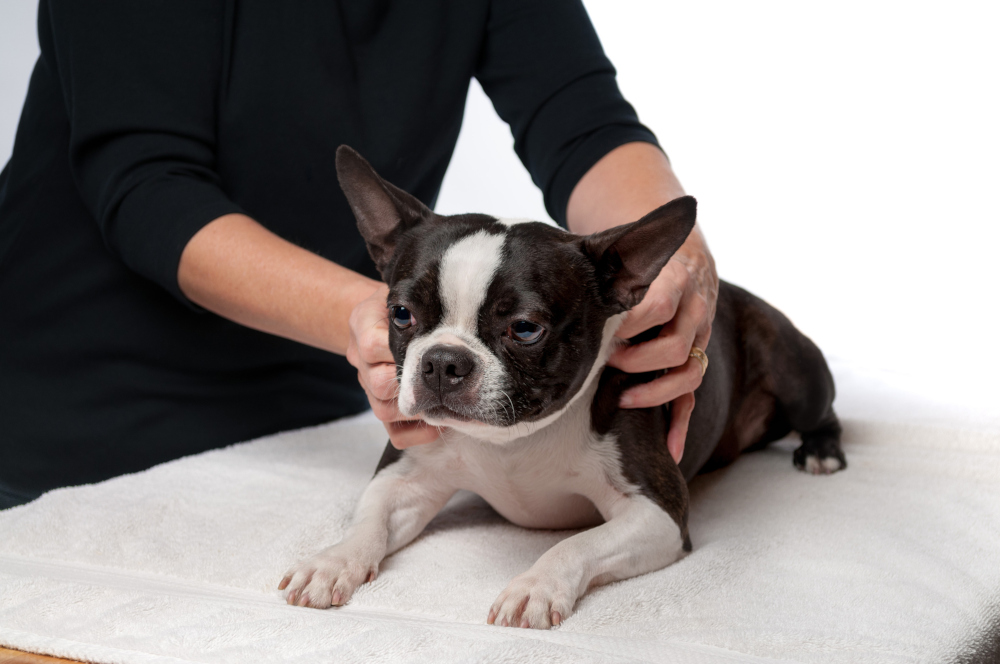Pet Safe Valentine’s Day

A Pet-Safe Valentine’s Day is simpler than you might think. To keep your pet safe and out of the emergency room, we’ve put together essential Valentine’s Day pet safety tips.
Flower Arrangements
Flowers and Valentine’s Day go hand in hand. Selecting the perfect flower arrangement is already challenging, but it becomes even trickier when considering which flowers could be harmful to your pets.
Non-Toxic Flowers
Below is a list of flowers you can safely include in your flower arrangements or bouquets. Just to be safe, the ASPCA has a complete list of toxic and non-toxic flowers and plants.
- Roses: Just remember to remove any thorns to prevent injury.
- Gerbera Daisies
- Snapdragons
- Phalaenopsis Orchids
- Freesia
- Sunflowers
- Lisianthus
Toxic Flowers
These flowers should avoided in the home and in your garden:
- Lilies: All parts (pollen, stem, leaves, flowers) are extremely toxic to cats.
- Tulips: Tulips contain compounds that can be toxic to cats.
- Sago Palm: Often used in arrangements and is highly toxic. Causes liver failure and potentially death.
- Carnations: Causes vomiting and diarrhea.
- Chrysanthemums: Causes vomiting, diarrhea, and incoordination.
- Amaryllis: Includes Belladonna, Saint Joseph lilies. Causes vomiting, depression, diarrhea, abdominal pain, hypersalivation, anorexia, and tremors.
- Oleander: Causes gastrointestinal tract irritation, abnormal heart function, hypothermia, and even death.
- Calla Lily: Causes oral irritation, pain, and swelling of mouth, tongue, and lips, excessive drooling, vomiting, and difficulty swallowing.
Chocolates, Xylitol and Other Sweets
According to the National Confectioners Association, 91% of Americans will celebrate Valentine’s Day with chocolate and candy. However, these sweet treats often contain hidden dangers like xylitol and other toxic ingredients that can be harmful to pets.
Why Is Chocolate Bad?
Chocolate contains theobromine and caffeine. Both chemicals can trigger symptoms like increased heart rate, high blood pressure, agitation, tremors, and seizures.
Although rarely fatal, chocolate ingestion can cause significant illness in pets. Unlike humans, dogs metabolize these compounds much more slowly, making them highly sensitive to their effects.
Symptoms of Chocolate Poisoning
If your pet is displaying any of the above symptoms, contact your local veterinarian or veterinary emergency clinic immediately.
- Vomiting
- Diarrhea
- Drinking excessively
- Hyperactivity
- Pacing
- Shaking
Xylitol Toxicity in Dogs
Xylitol is a sugar substitute and is highly toxic to dogs. It can cause serious health problems such as low blood sugar and liver injury.
Xylitol is found in a variety of products:
- Gum
- Sugar free candy & mints
- Sugar free baked goods
- Toothpaste
- Mouthwash
- Cough drops
- Certain types of peanut butter
Symptoms of xylitol poisoning include:
- Vomiting
- Weakness
- Tremors
- Seizures
- Coma
When In Doubt, Contact Us
Your team at Lone Tree Veterinary Medical Center is equipped to handle a pet poisoning emergency. If you have an emergency outside of our business hours, our after-hours phone message will direct you to a nearby veterinary emergency hospital.



